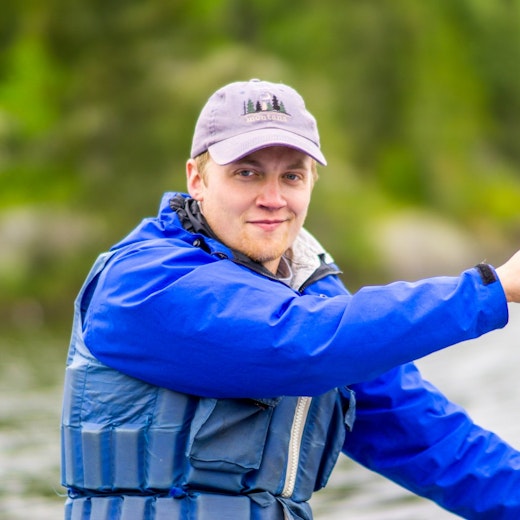
Going on a wilderness adventure is physically demanding by nature. It also may be a much-needed springboard for a lifetime of physical activity, especially for kids who don’t enjoy competitive sports. With kids spending more time than ever sitting down and consuming electronic media, a new skillset – the ability to take overnight trips into the wilderness – could be the catalyst needed to get them off their seats and spark newfound strength they’ll carry for life, even if they don’t plan on camping ever again.
Bye-Bye Convenience
Everything is more work on the trail. Even cooking – which is typically not regarded as a physically demanding task – takes a lot of sweat equity. The cumbersome food pack (may weigh up to 100 pounds at the beginning of long trips) must be carried from the canoe up to the campsite. Firewood must be found (which typically involves a long search since campsites have usually been scavenged by previous campers), gathered, prepared (cut or split), and stockpiled. Water must be collected and boiled. Food preparation is similar to preparing food at home – minus no tables, electricity, or the aid of machines. All the while the fire needs to be kept stoked, the cooks are perpetually bending down to stir the pots, and someone needs to go collect even more water to boil for the popular post-meal cup of tea.
Once the meal is ravenously consumed, the cleanup involves lots of scrubbing and dumping of dirty water well away from camp, or as we like to say, “as close as you feel comfortable having a bear come visit.” Then the food pack needs to be hoisted up into a tree for the night. Leave No Trace Principles must be followed at all times.
The Value of Self-Propelled Transportation
There’s a significant difference in value between driving to the top of a mountain to visit a scenic overlook versus planning, packing, and hiking for 7 days to the top of a mountain. Nature has a powerful effect on our health and well-being. It is evident in our brains, bodies, and spirits.
Self-propelled wilderness travel provides the same euphoric feelings we get following exercise multiple times throughout the day. However, these feel-good feelings are not limited to a small post-exercise window – though exercise is the prerequisite – we feel them while we’re eating, witnessing a beautiful view, reliving the day around a campfire, cooling off in a river, immersed in solitude, relaxing in a lakeside hammock, and sipping that first cup of coffee in the morning. Being self-propelled amplifies rewarding moments.
Canoe trips are physically demanding. Sometimes the exercise happens without realizing it; other times we feel every bit of it. Paddling for hours on end (with proper form), carrying a canoe, and hauling around a portage pack all require core strength. Upper body strength is tested while paddling into the wind and helping trip mates put packs onto their backs countless times. Lower body strength is tested on portages, where all participants must carry either a pack or a canoe along minimal-maintenance trails that often feature rock stairs and steep hills. Endurance is tested throughout long paddles and portages. Balance is required when stepping over slippery rocks with a pack or canoe on your back.

Lifelong Physical Activity
Outdoor adventures provide opportunities to participate in a non-competitive setting, regardless of skill level – a new concept to some kids, who may have been negatively affected by the competitive nature of organized youth sports and therefore turned away from being physically active. Remote wilderness environments demand full participation and teamwork in order to travel sucessfully as a group. By progressively learning the skills required to go on multi-day hiking, canoeing, and kayaking trips, campers gain the competence necessary to participate in these activities for a lifetime. Indeed, the goal of a quality physical education program is “to develop physically literate individuals who have the knowledge, skills, and confidence to enjoy a lifetime of healthful physical activity” (SHAPE America).
Even if campers never plan on going on an outdoor adventure again, inherently rugged wilderness adventures can tease out strength they never knew they had; strength they carry for the rest of their lives. That is just one of the many benefits of wilderness adventure camps.






